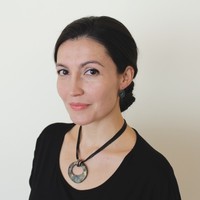In this article, we explain Ecuador's foreign policy shift away from the counter-hegemonic project of the Pink Tide and toward the US-led international order. Current scholarship assumes that small states pursue moral recognition from... more
In this article, we explain Ecuador's foreign policy shift away from the counter-hegemonic project of the Pink Tide and toward the US-led international order. Current scholarship assumes that small states pursue moral recognition from great powers by reproducing the normative principles of the hegemonic order. However, the dynamics of small-state status seeking remain underexplored. How does domestic elite competition, including their preferred strategic narratives and histories of elite socialization, shape policymakers' preferences for status within alternative international orders? Bourdieu's practice theory enables us to demonstrate how senior Ecuadorian diplomats embody the principles of the US-led hegemonic order. By analyzing documents, speeches, and the results of semistructured interviews, we show how diplomats' tacit background knowledge led them to reject former president Rafael Correa's initiatives and replace them with a "professional" diplomacy and "pragmatic" foreign policy. Diplomats pursue moral authority not only for its own sake but also as a means of alleviating stigmas associated with Ecuador's intense subordination. In this way, diplomats legitimated the restoration of the pre-Correa liberal state. Their experience of hysteresis, or a mismatch between their habitus and field position, drove them to assert their taken-for-granted truths as a new orthodoxy once Correa departed.
Research Interests:
The “new left” in Latin America has explored discursively variations of the free market economy. In this “post-neoliberal project”, the term popular and solidarity economy (PSE) is used as part of a differentiated foreign trade strategy... more
The “new left” in Latin America has explored discursively variations of the free market economy. In this “post-neoliberal project”, the term popular and solidarity economy (PSE) is used as part of a differentiated foreign trade strategy that encompasses the concept of “fair trade”. Both PSE and fair trade appear in the European Union-Ecuador Trade Agreement draft. In this context, the article presents three considerations: 1) Concepts related to alternative economies are not universal. Thus, there is a condition of polysemy when contrasting the term PSE in Ecuador with the term “social economy” in Europe, despite the fact that both include fair trade as a constitutive element; 2) As a result of this conceptual ambiguity, there are diverse narratives revolving around the Agreement; therefore, 3) It is necessary to delimit the conceptual boundaries between the terms “free-market economy” and “popular and solidarity economy” in a historic moment in which the survival of “post-neoliberal political projects” in the region is at stake.
